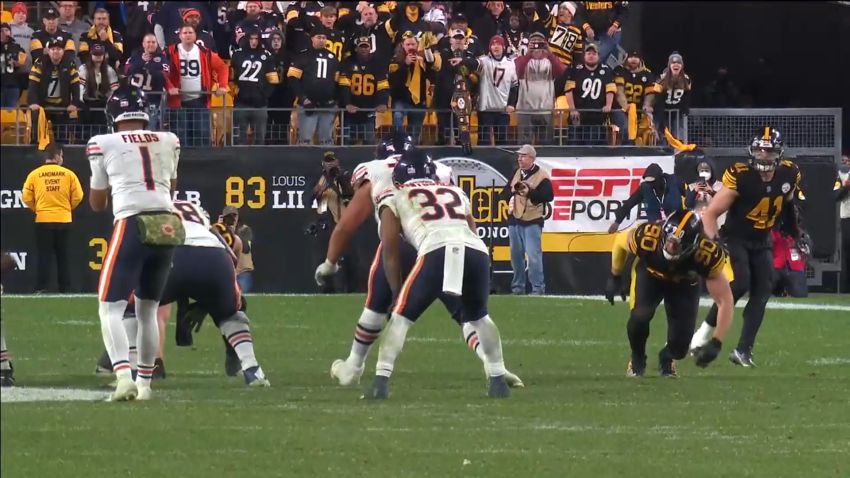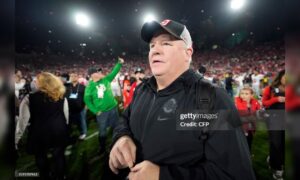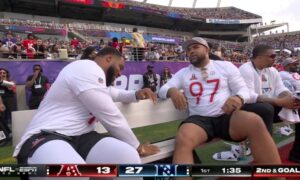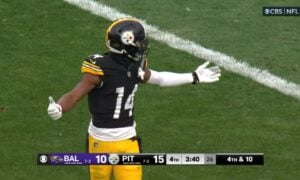Leave it to the guy that exited the game with three sacks to leave unsatisfied. Pittsburgh Steelers outside linebacker T.J. Watt was asked after last night’s win about the Chicago Bears’ Justin Fields seemingly having more time to operate the offense in the second half, and the fifth-year veteran had an inkling as to why that was.
“It helps when the tackles are getting out half a second early every play”, he said. “I don’t know what’s going on with that. It seems like the tackles are leaving early on every single down, and we really can’t do anything about it, so the homefield advantage is really kind of dead. I don’t know what to do about that. That always makes it a lot tougher for a pass rusher. Got to find ways to overcome”.
In fairness, Watt was far from alone in his observations; I even noted it myself on Twitter, that the Bears were certainly benefiting from some false starts not being called, though it was in the context of the officiating generally going the Steelers’ way.
And the most important thing about officiating is consistency. If the officials are letting the tackles get a jump all day, and they are calling it even across the board, then there is only so much you can say about that—and even less without getting fined.
“I try to let the officials know”, Watt did say when he was asked. “That’s really all I can do”.
The Steelers have been on the wrong side of false start non-calls before. You may remember a game against the Chargers a couple of years back in which they scored a touchdown on a play on which the right tackle seemed to false start.
Make no mistake, Watt’s gripe is legitimate. It would be hard to argue that the Bears were not guilty of numerous false starts on the night that were not called, if you go by the letter of the law. And that makes it immensely more difficult for a player in his position to do his job.
Still, perhaps it’s not what you want to rest the argument on when asked why the pass rush was less effective against your opponent later in the game—after all, the false starts were happening in the first half as well.
Credit to the All-Pro, however, who not only recorded three sacks, but also had three quarterback hits, three tackles for loss, and a key pass defensed on the final offensive play of the game, which forced Chicago to attempt a 65-yard field goal. His seven tackles were one shy of Minkah Fitzpatrick for the team lead.








